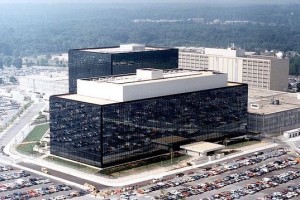 A group of 26 U.S. senators, cutting across party lines, are seeking “public answers” on whether the National Security Agency collected in bulk other data such as credit card purchases and financial information in the U.S. besides phone records.
A group of 26 U.S. senators, cutting across party lines, are seeking “public answers” on whether the National Security Agency collected in bulk other data such as credit card purchases and financial information in the U.S. besides phone records.
The senators want the information for a public debate on the surveillance controversy, and have in a letter to the Director of National Intelligence, James R. Clapper, also asked for how long the NSA has used the Patriot Act to engage in the bulk collection of records of people in the U.S., and whether the information includes cell-site location data.
The NSA has been allowed by a court order to collect phone metadata of a large number of customers of Verizon, according to a report in the Guardian last month. The information was said to have been leaked by a former NSA contractor, Edward Snowden, who also passed on documents that suggested that the NSA had real-time access to the content on servers of Internet companies like Facebook and Google.
Beyond collecting telephony metadata such as telephone numbers dialed and length of calls, the programme under which Verizon data was collected does not allow the government to listen in on anyone’s phone calls, and the information acquired does not include the content of any communications or the identity of any subscriber, Clapper said in a statement, while confirming the authenticity of the order.
The programme under the Patriot Act is conducted under authority granted by Congress and is authorised by the Foreign Intelligence Surveillance Court (FISC), and included authority to compel production of business records and other tangible things relevant to an authorised national security investigation with the approval of the FISC, Clapper added.
After the publication in newspapers of the classified documents, U.S. President Barack Obama called for a public debate on the trade-off between privacy and security.
“Reliance on secret law to conduct domestic surveillance activities raises serious civil liberty concerns and all but removes the public from an informed national security and civil liberty debate,” the senators said in a statement Friday. The senators include Ron Wyden, a democrat from Oregon, who organised the letter.
Telephone records can reveal a variety of private personal information including on personal relationships, political and religious affiliations and family medical issues, the senators wrote in their letter to Clapper. The collection of cell phone location data would effectively convert cell phones into tracking devices, the senators added. “We are concerned that officials have told the press that the collection of this location data is currently authorised,” according to the letter.
The senators have also attempted to fill other gaps in their information on the government’s secret surveillance programs, including asking for information on specific instances where the review of bulk phone records collected under section 215 of the Patriot Act has helped thwart a particular terrorist plot, which is a key justification the government uses for surveillance.
The Patriot Act’s business records authority is broad in scope, and can be used to collect information on credit card purchases, pharmacy records, library records, firearm sales records, financial information and other sensitive data, according to the letter.
New legislation, introduced last week in the U.S. Senate, called the FISA Accountability and Privacy Protection Act of 2013, aims to reform the Patriot and FISA Amendments Acts to provide greater oversight and control to the government’s surveillance programmes.





